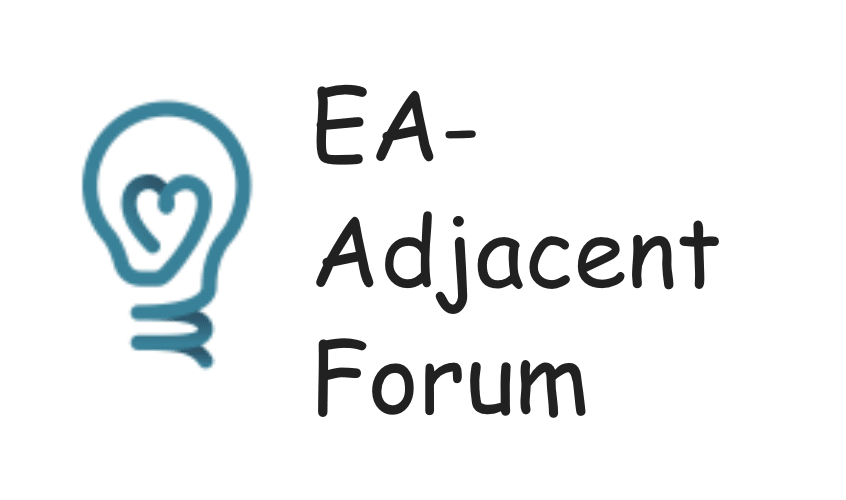TL;DR: We’re[1] not really comfortable calling ourselves “EAs.” Moreover, we know that this is true for a lot of people in the EA community the eclectic group of people trying to make the world better who happen to use the Forum. So we’re renaming the “Effective Altruism Forum” to be the "EA-Adjacent Forum" (“EA Forum” for short).
We have some deep disagreements with EA
Look, we run a forum focused on discussions about how to do the most good we can, and we work at the "Centre for Effective Altruism," but we're not really members of the EA community. We have some deep disagreements with many parts of the movement.[2]
(We don’t even always agree with each other about our disagreements, we don’t always think that the EA thing is the right thing (see also), and we even hosted an EA criticism contest to surface disagreements.)
It’s not just us
We know that others who use the Forum also prefer to call themselves “EA-adjacent.” We’re also somewhat worried that anything that someone posts on the EA Forum can be interpreted as representative of effective altruism.
We think it’s important to preserve nuance and be clear about the facts listed here, so we’re rebranding.
Impact of the rebrand, next steps
It’s already the case that “EA” often stands for “Ea-Adjacent,” and we don’t think the rebrand will change much in terms of how the Forum will function.
As always, we’d love to hear your feedback. You can comment here or contact us directly.
(Thanks to [unnamed people] for suggesting this rebrand. We’d credit them directly, but some of them prefer to not associate so closely with EA.)

- ^
The EA-Adjacent Forum team. Please note that not all teammates agree with everything written here (probably).
- ^
Some example disagreements:
1) We disagree with a lot of people in the EA community about styling and font choices.
2) Most people in the EA community promote functional decision theory, but after spending many years making software for the forum, we've come to the conclusion that object-oriented decision theory is superior.
3) We disagree with CEA about the spelling of “Centre” in “Centre for Effective Altruism.” It should be spelled “center” as Noah Webster intended.
4) Many EAs appear to focus on scope sensitivity, but we think scope specificity is more neglected
5) We think QALYs should be converted to their metric-system equivalent, such that 1 metric QALY is the amount of quality-adjusted life that can be supported by 1 joule of energy within a 1-cubic-meter box over 1 year at 0 degrees celsius.




It feels like the more I proclaim myself an EA the less others want to. Fortunately, I don't think much about correlation, so I'm not going to worry about it.